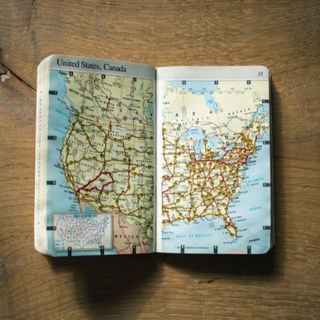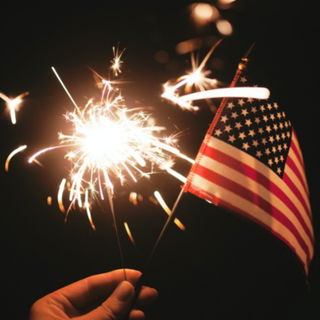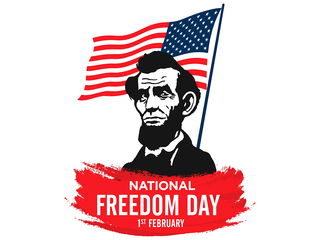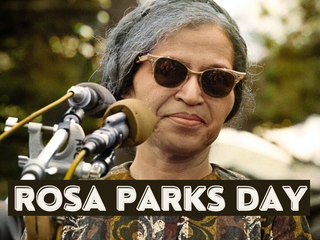- Calendar
- Calendar 2026
- January
- Emancipation Proclamation Anniversary
Emancipation Proclamation Anniversary
Abraham Lincoln issued the Emancipation Proclamation, the then President of the United States on January 1, 1863, announcing that " all persons held as slaves" within the rebellious areas are, and henceforth shall be free."
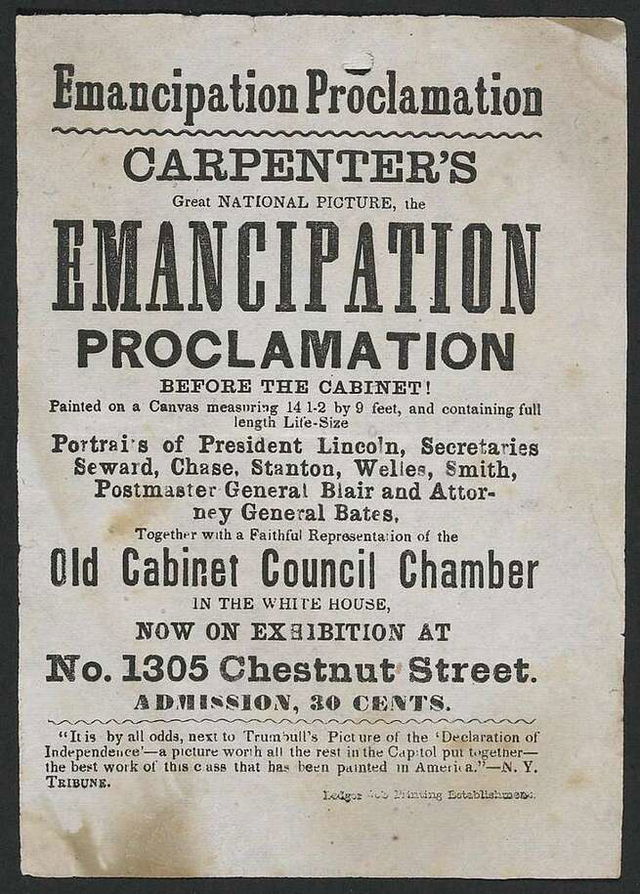
The final Emancipation Proclamation stated
"I, Abraham Lincoln, President of the United States, by virtue of the power in me dressed as Commander-in-Chief, of the Army and Navy of the United States in time of actual armed rebellion against authority and government of the United States, and as a fit and necessary war measure for suppressing said rebellion, do... order and designate as the States and parts of States wherein the people thereof respectively, are this day in rebellion, against the United States, the following, to wit:"
It was the third year of the Civil War and this proclamation altered the legal status of over 3.5 million African American slaves in the CSA from 'enslaved' to 'free'.
The Proclamation also allowed former slaves to sign up and be accepted into the armed forces. Lincoln issued the Preliminary Emancipation Proclamation on September 22, 1862.
Why Did Lincoln Issue the Emancipation Proclamation
Before the American Civil War began, many people including the leaders of the North were initially concerned with just preventing the extension of slavery into the western territories that would ultimately enter a statehood within the Union.
With the Southern States' withdrawal and the beginning of the Civil War, the ongoing slavery of Southerners by people of the North was deemed useless as it served no real political purpose.
Thus, emancipation rapidly changed from an obscure opportunity to a forthcoming and feasible possibility. Lincoln declared that he wanted to save the Union no matter what.
"My paramount object in this struggle is to save the Union and is not either to save or to destroy slavery"
-Abraham Lincoln
This includes eradicating slavery-be it partially or completely. Right after the Battle of Antietam on September 17, 1862, he issued his proclamation calling on the revolting states to return to their allegiance within a year or they would declare their slaves free.
To the astonishment of Lincoln and many others, none of the States and thus, the freedom of slaves were declared on January 1, 1863.
What Did The Emancipation Proclamation Do?
The Emancipation Proclamation did three things:
- expanded the objectives of the Union War effort
- it made the abolition of slavery a more valuable Union goal
- reunited the country
The After Effects Of The Emancipation Proclamation
The Emancipation Proclamation was a revolutionary movement. However, it did not change everything completely.
President Lincoln could not issue such orders on his own and many fellow leaders and significant figures did not initially support the movement.
However, as the commander-in-chief of the United States Army and Navy, he could issue orders that only were applicable to his territory. As the Emancipation Proclamation read
"I do order and declare that all persons held as slaves within said designated States, and parts of States, are, and henceforward shall be free... [S]uch persons of suitable condition, will be received into the armed service of the United States.... And upon this act, sincerely believed to be an act of justice, warranted by the Constitution, upon military necessity, I invoke the considerate judgment of mankind and the gracious favor of Almighty God...uch persons of suitable condition, will be received into the armed service of the United States.... And upon this act, sincerely believed to be an act of justice, warranted by the Constitution, upon military necessity, I invoke the considerate judgment of mankind and the gracious favor of Almighty God..."
Abraham Lincoln did not free all the black slaves through his Emancipation Proclamation. Instead, it only freed the slaves in the rival Confederate territories.
This meant that the Proclamation did not extend to the black slaves already in the Union. This diplomatic measure warranted the support of border states who were dependent on their slaves.
That's why it is still questioned if this made an impact. Even if the impact was small at first, it did create a revolution and led to the abolition of slavery. However, the Emancipation Proclamation had a massive impact on an international scale.
The Cotton Revolution was already a large-scale disaster and it was predicted that a war would break out sooner than expected between the French and English governments.
But, this fight for the abolition of slavery made it impossible for the European government to meddle. The Emancipation Proclamation did not only cancel the possibility of war but gave a new meaning to the freedom movement as well.
As a result, Black people had the chance to serve in the military and it led to the enlistment of over 180,000 black soldiers for the remainder of the Civil War.
It is also said that by August 26, 1863, Lincoln wrote a letter to James C. Conkling stating that this policy and the recruitment of colored soldiers made the most substantial impact on the opponent.
According to Abraham Lincoln, his biggest motive during his tenure was the Emancipation Proclamation, and to date, it remains one of the most revolutionary acts of the 19th century.
The act was officially sealed by the approval of the Thirteenth Amendment in December 1865.
You might to like read these articles next:
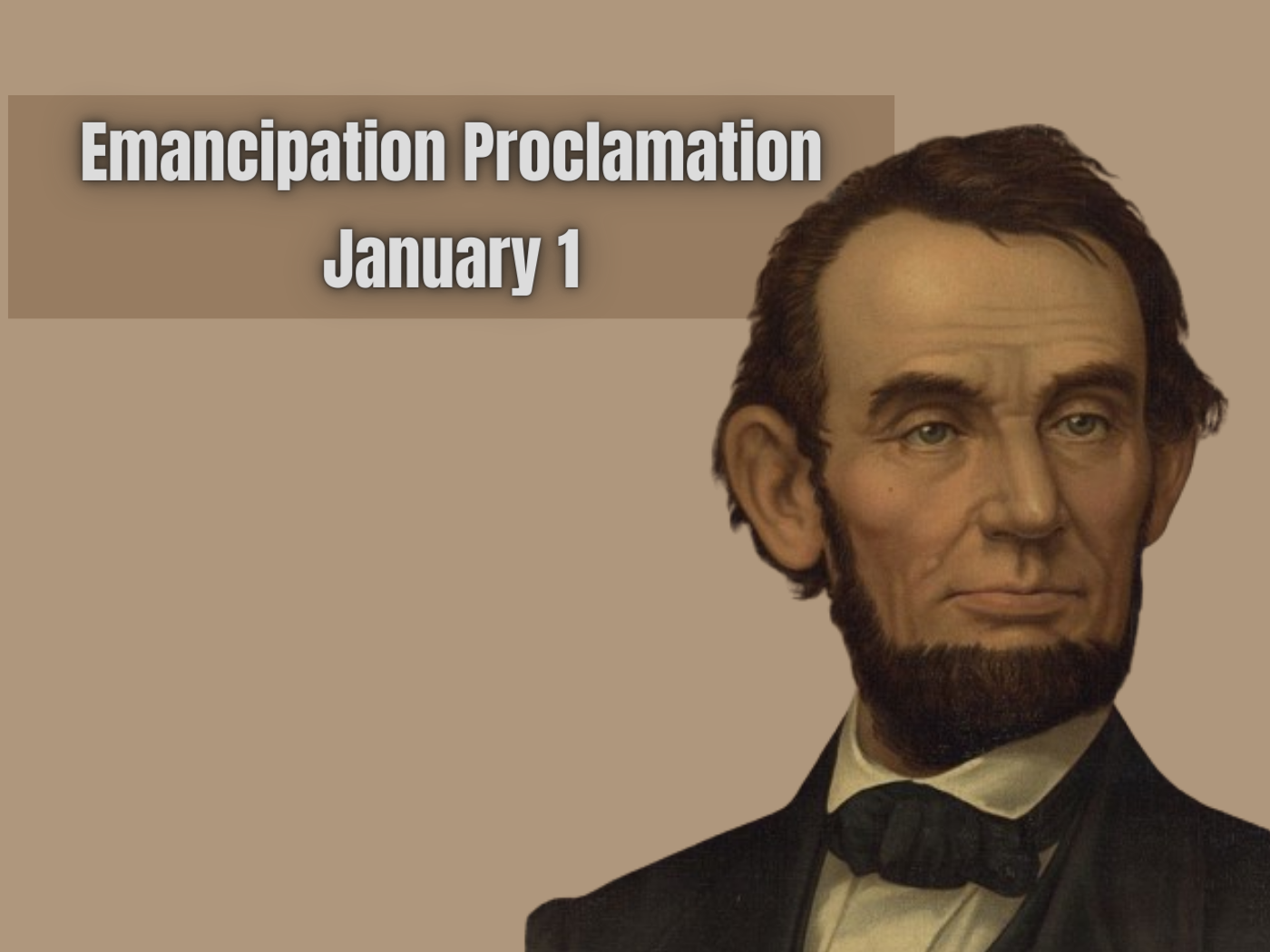
Other Celebrations
-
Jan 01 WedBoston Tea Party Anniversary
-
Apr 12 Sat
-
Apr 16 Wed
-
Jun 06 Fri
-
Jun 19 ThuJuneteenth Holiday
-
Jul 20 Sun

Emancipation Proclamation Anniversary - Next years
Friday, 01 January 2027
Saturday, 01 January 2028
Monday, 01 January 2029
2025 Calendars
Trending
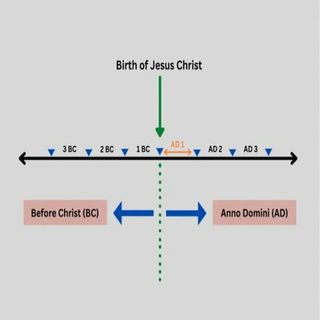


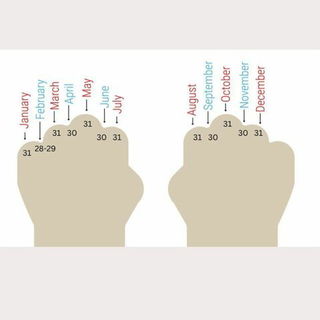

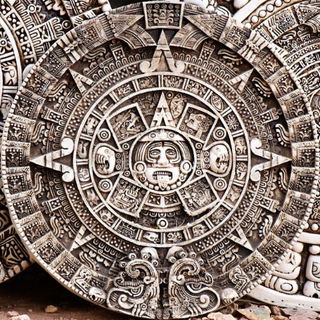
You might also be interested in
